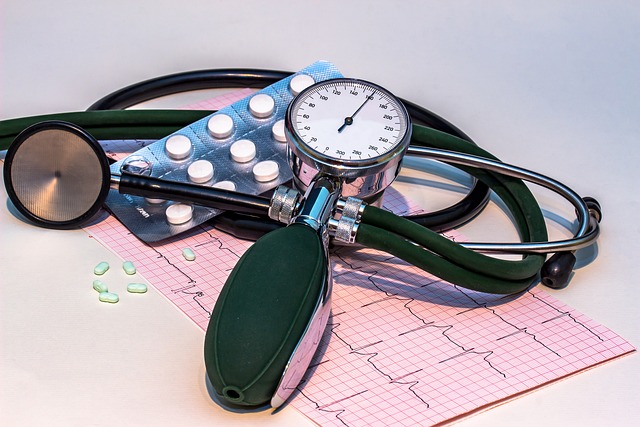A hernia is a condition where an organ, such as the intestines, pushes through a weakened spot or opening in the muscle or connective tissue that holds it in place for this a common question of how to tell if you have a hernia is always there. It is a relatively common condition and can develop anywhere in the body, though it most often occurs in the abdominal area. Understanding the signs, symptoms, and how to tell if you have a hernia is crucial for timely treatment and avoiding complications.
Types of Hernias
Before talking about how to tell if you have a hernia, there are different types. The most common ones are:
Inguinal Hernia: This is one of the types that takes place in the lower abdomen or groin area. It’s common in men and happens because of the weakness in the abdominal wall.
Hiatal Hernia: This is a condition where a portion of the stomach pushes up through the diaphragm into the chest cavity. It is usually associated with acid reflux and heartburn.
Umbilical Hernia: This occurs near the belly button. It is the most common type in infants but can also occur in adults, usually due to obesity or pregnancy.
Incisional Hernia: This kind of hernia can occur at the location of a previous surgical incision if the tissue around the scar becomes weakened.
Femoral Hernia: These are found in the upper thigh or groin area, and they are more common in women. They can sometimes cause complications if they are not treated.
Each of these types of hernias has slightly different symptoms and risk factors, but they all share some common characteristics.
Read More: How to unclog ear at home: 6 Effective Remedies You Must Try
Symptoms of a Hernia
Symptoms of how to tell if you have a hernia can be quite variable, depending on the hernia type and location, although the common ones are as mentioned below:
1. Visible Lump or Bulge
The most obvious sign of how to tell if you have a hernia is the visible bulge or lump. The bulge may be most pronounced at times when you cough or bend over, or whenever you lift heavy objects. There may be a chance where the bulge disappears or seems to get smaller as one lies down. This usually presents in the abdomen or groins.
2. Pain or Discomfort

If you are wondering how to tell if you have a hernia then Pain or discomfort around the bulging area is another common symptom. It might be sharp or just a dull ache and usually worsens with some kinds of activities like lifting, sneezing, or bending over. For some patients, the pain is mild and intermittent, but for other patients, it may be continuous or more severe.
3. Heaviness or Pressure
Another factor of how to tell if you have a hernia is People with hernias often report a sensation of heaviness or pressure in the affected area. This sensation might feel like something is pulling or straining within the abdominal or groin region.
4. Changes in Bowel Movements (in some cases)
Some people, especially when they have a hiatal or incisional hernia, may experience digestive disturbances. Symptoms can include bloating, constipation, and even difficulty swallowing when they have a hiatal hernia. More serious cases may develop bowel obstruction, leading to nausea or vomiting.
5. Pain When Exercising

Exertion, especially activities that involve straining, can make a hernia more painful or exacerbate existing symptoms. This can include exercises like weightlifting, running, or intense physical labor.
6. Symptoms Worsen When Coughing or Sneezing
Coughing or sneezing can increase the pressure in the abdomen, which may cause the hernia to bulge further and result in more pronounced pain or discomfort.
7. Skin Discoloration (in severe cases)
In very rare cases, if a hernia becomes incarcerated, where the contents of the hernia cannot be pushed back into the body, or strangulated, in which the blood supply to the herniated organ is cut off, the skin over the bulge may become red or purple, indicating a medical emergency
Diagnosis of a Hernia
If you suspect that you have a hernia, then it would be important to consult with your healthcare provider for best advices on how to tell if you have a hernia. Usually, diagnosis involves a physical exam where the doctor palpates the affected area, searching for a bulge or a lump. In other instances, imaging tests may be essential to get a better picture of the size and location of the hernia; the tests may include an ultrasound, CT scan, or an MRI.
When to Visit a Doctor

While many hernias are not immediately life-threatening, they must not be left alone. The following conditions warrant immediate medical attention when present with the bulge or at the site of the bulge: Intense pain or tenderness in the area where the bulge is Nausea and vomiting, or the inability to pass gas or stool, that could be symptoms of a bowel obstruction Red, purple, or dark discoloration of the bulge; this is an indication of strangulation. Sudden enlargement of the bulge Strangulated hernias are a medical emergency and should be treated immediately to prevent life-threatening complications.
Treatment of Hernias
The only definitive treatment for a hernia is surgery. However, treatment depends on the severity of the hernia, its location, and whether complications are present.Watchful Waiting: In case of minor hernias causing less discomfort, doctors may opt for a “wait and see” approach. But the hernia can deteriorate over time, so one needs to monitor it often.
Surgical Repair: In most cases, surgery is advised in the case of bigger hernias, especially those that are painful or discomforting. There are two broad categories of surgery:
Open Surgery: The surgeon will make an incision to gain access and repair the hernia. Mesh may be used to reinforce the area.
Laparoscopic Surgery: This is a minimally invasive surgery that uses a camera to guide the procedure. It has a shorter recovery time compared to open surgery.
Lifestyle Changes: Doctors may sometimes prescribe lifestyle changes like weight management, avoiding heavy lifting, and other medications that help with the symptoms such as acid reflux in case of hiatal hernias.
Conclusion
Recognizing the symptoms and signs of a hernia is important for timely seeking medical care. If a lump, pain, or discomfort in the abdomen or groin is noticed, a professional should be consulted to determine whether a hernia is indeed the cause. While most hernias require surgical repair, most people recover well from the surgery and return to normal activities.
FAQs on how to tell if you have a hernia
1. Does a hernia heal itself?
No, hernias do not heal by themselves. The only curative treatment is surgery, especially for larger or symptomatic hernias. Even small hernias need to be watched because they can become worse over time.
2. Is it safe to exercise with a hernia?
Generally, exercising with a hernia is not recommended, especially activities that involve heavy lifting or straining. These actions increase intra-abdominal pressure and make the hernia worse. Consult with a healthcare provider before resuming exercise if you have a hernia.
3. Can I live with a hernia without surgery?
Some patients with small hernias that are asymptomatic and do not require immediate surgery could live with the condition on medical supervision. However, surgery may still be required down the road since hernias tend to worsen in time and lead to complications.







